Happy Friday! We’re pleased to announce the SCOTUSblog Summit: On the Merits, co-hosted by SCOTUSblog and the SNF Agora Institute at Johns Hopkins University, a convening that carries forward the university’s commitment to fostering far-reaching dialogue around pressing policy issues. In that spirit, this daylong event will bring together legal experts and public leaders to explore how the courts are shaping governance, policymaking, and democratic life.
Justice Amy Coney Barrett will headline the event with a keynote conversation and signing of her new book, Listening to the Law: Reflections on the Court and Constitution. Other sessions will include discussions with Fortune 50 general counsels, regulatory leaders and top law professors.
We’ve reserved a limited number of seats for Dispatch members. You can register your interest in attending this event here. Attendees will be selected and notified based on availability.
Quick Hits: Today’s Top Stories
- Several news outlets have reported that Israel is in talks with multiple countries—including Indonesia, Libya, Somaliland, South Sudan, Uganda, and Ethiopia—about accepting Gazans who voluntarily depart the territory. In a statement, South Sudan’s foreign affairs ministry refuted the claims, calling them “baseless.” The reports follow Israeli Prime Minister Benjamin Netanyahu telling an Israeli TV station Tuesday that “I think that the right thing to do … is to allow the population to leave [Gaza].” He added that such actions would not violate international law, but did not specify which countries Gazans could relocate to.
- The White House and Kremlin announced on Thursday that President Donald Trump and Russian President Vladimir Putin will hold a joint press conference immediately following the pair’s summit on Friday at the Elmendorf–Richardson military base outside Anchorage, Alaska. The two leaders will first talk one-on-one with translators before senior officials from both countries join them. Putin said Thursday that he believes U.S. peacemaking efforts to be “quite energetic and sincere.” In a Thursday interview on Brian Kilmeade’s radio show, Trump said there’s a 25 percent chance that it “will not be a successful meeting,” while also raising the possibility of Ukrainian President Volodymyr Zelensky joining them both in Alaska for a second meeting.
- Ukrainian government officials claimed Thursday that they had stabilized battle lines in Donetsk province, following a Russian push through Ukrainian defenses over the last several days. Small units of Russian troops had infiltrated roughly 6 miles inside Ukrainian lines near the town of Dobropillia, raising fears that the breach would open the way to a broader Russian push. Ukraine rushed units—including the experienced Azov Corps—to counter the attack, which many suspect Russia timed to coincide with upcoming talks in Alaska. For more on Ukraine’s position in the war, and the stakes going into today’s summit, read Tuesday’s TMD.
- The Producer Price Index—which measures the amount producers receive for goods from customers—increased 0.9 percent in July, according to a Thursday report from the Labor Department’s Bureau of Labor Statistics. The increase was the largest in a single month since June 2022 and exceeded economists’ expectations of 0.2 percent. The increase likely reflects producers’ passing on the costs of Trump’s tariffs to consumers.
- The Department of Health and Human Services (HHS) announced on Thursday that it will revive a long-shuttered vaccine safety panel, the Task Force on Safer Childhood Vaccines, which National Institutes of Health Director Jay Bhattacharya—who will chair the panel—said emphasizes the agency’s “commitment to rigorous science.” The panel was first formed through congressional legislation in 1986 and disbanded in 1998 after publishing its final report. In May, the Children’s Health Defense—a nonprofit that HHS Secretary Robert F. Kennedy Jr. founded and chaired—funded a lawsuit against Kennedy for his “failure to establish the Task Force.”
- The Supreme Court on Thursday declined to temporarily block Mississippi from enforcing a state law requiring social media companies to implement age-verification processes for all users and to obtain parental consent from minors registering an account. The justices did not rule on the legality of the law—in a concurring opinion, Justice Brett Kavanaugh wrote that the statute “is likely unconstitutional”—but ruled that it would not pause it from taking effect while the broader legal case unfolds in federal court. While the state maintains that the law is a legal and necessary protection for child internet users, NetChoice—a trade association for the tech industry that filed the legal challenge against the statute—argues it violates the First Amendment and unconstitutionally restricts online users’ freedom of expression.
- Democrats in the Texas House of Representatives—who have left the state to block the Texas Legislature from passing new GOP-friendly electoral maps—said Thursday they would return, conditional on the Texas Legislature ending its current special session and California releasing draft maps for its state, aimed at nullifying potential gains for the GOP in Texas. “We’re prepared to bring this battle back to Texas under the right conditions and to take this fight to the courts,” said Rep. Gene Wu, the Texas House Democratic leader. For more on the fight, read Thursday’s TMD.
- A Texas district judge ordered on Wednesday that all assets belonging to InfoWars—the online media website founded by longtime conspiracy theory enthusiast Alex Jones—be sold off, with the proceeds going to 10 families of victims killed in the 2012 Sandy Hook Elementary school shooting. The website’s assets, including its intellectual property, will be transferred to a court-appointed receiver tasked with selling them to prospective buyers. In 2022, a Connecticut jury ordered Jones—who claimed the student massacre was a “giant hoax” that killed “no one”—to pay some families $1.4 billion for defamation and emotional stress. In November, the satirical news site The Onionwon an auction to purchase InfoWars. But a judge later rejected that deal, ruling that the bidding process was insufficiently transparent.
After the Last Flight Left Kabul
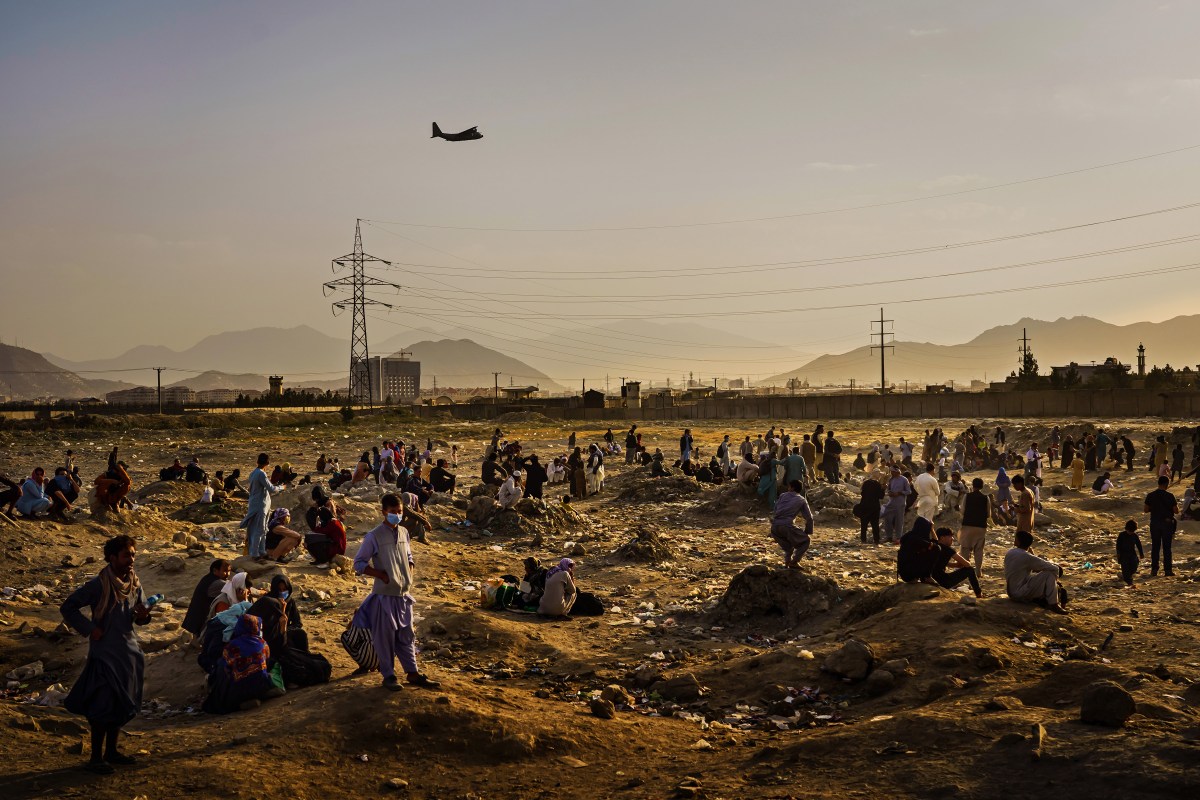
They must have known it was hopeless. But as the U.S. Air Force C-17 Globemaster lifted off from Kabul’s international airport, desperate Afghans tried to cling to the plane, gripping the metal just below the wing. A conflict—America’s longest—that began as an effort to eliminate terrorism and evolved into a broader mission to establish democracy in Afghanistan had ended with images Americans hadn’t witnessed since helicopters evacuated Saigon in 1975. Most civilians on the runway released their hold and stepped back, resigning to life under Taliban rule. But at least three held on, eventually falling to their deaths. Others, who tried to stow away in the wheel well were crushed by the retracting landing gear.
Today marks four years since the fall of Kabul, when Taliban forces entered the Afghan capital and declared victory over the American-backed government, followed by the C-17 incident a day later. Within two weeks, the last U.S. forces would leave the country.
The speed of Afghanistan’s disintegration caught all observers, including U.S. intelligence, off guard. On August 6, 2021, Taliban forces took the provincial capital Zaranj, without a fight; then Shebergan, capital of Jowzjan province, a day later; then moved through three more cities the next day. They fell without significant resistance as Afghan security forces—trained and equipped by the U.S. for years—either fled, defected, or simply melted away. President Joe Biden reiterated his support for the U.S. withdrawal “I do not regret the decision,” he said at the time. As the Washington Post reported, U.S. intelligence officials had downgraded their estimate for how long Kabul would hold out, from up to a year to as soon as a month. By August 15, the Taliban took the city, and Afghanistan President Ashraf Ghani fled the country.
Operation Allies Refuge—an evacuation effort to airlift out translators, embassy employees, and other at-risk Afghan civilians—became a desperate race against time. Anyone who had worked directly or indirectly for the United States was under grave threat, as were their families. A March 2022 after-action report noted that “evacuation efforts quickly escalated into a massive humanitarian airlift,” transporting more than 125,000 people out of the country through Kabul’s single-runway international airport (at that time known as the Hamid Karzai International Airport, but later renamed by the Taliban to the Kabul International Airport). Amid growing pandemonium, on August 21, leaders of the evacuation effort shut down all entrances to the airport, other than Abbey Gate. Five days later, an ISIS-K suicide bomber detonated himself there, killing 13 U.S. military service members and 169 civilians.
Though the chaos of the early days has subsided, four years later, conditions in Afghanistan are bleak. The Islamic Emirate of Afghanistan—the official title for the Taliban’s government—is only recognized as legitimate by Russia. The country’s economy has shrunk by a third, unemployment has been as high as 20 percent, poverty is rampant, trust in financial institutions is low, the public health system has nearly collapsed, and its citizens have lost access to much of their international aid. The U.S. provided $3.83 billion between August 2021 and 2025, but the final report from the U.S. Special Inspector General for Afghanistan Reconstruction (SIGAR), published August 13, 2025, found that the Taliban systematically exploited every available method—including force, regulatory control, corruption, and collusion with U.N. officials—to steal or divert U.S. aid. The U.S. canceled nearly all its humanitarian assistance to the country in April 2025 as part of President Donald Trump’s sweeping cuts to foreign aid.
Meanwhile, Afghanistan suffers drought, with Kabul’s underground water reserves depleting, and most of the city’s fought-over supply is brought in by, as the New York Times put it, “Chinese-made tricycles and Soviet-era trucks.” At the current pace, Kabul and its 6 million residents will be without water by 2030. Multiple dam and water supply projects had been underway or approved, with budgets in the hundreds of millions, but most stopped or were functionally canceled after the Taliban seized control.
In his first press conference, on August 17, 2021, Taliban spokesperson Zabihullah Mujahid promised that “Private media can continue to be free and independent” and that the Taliban would “allow women to work and study.” In the years since, the Taliban have arrested many Afghan journalists, and Afghanistan has among the world’s harshest restrictions on women and girls. The regime excludes girls from education beyond the sixth grade and bars women from most employment, unaccompanied travel, leaving the house without a burqa, and speaking outside the home.
The U.S. withdrawal was widely considered a failure—one from which Biden’s approval ratings would never recover—but it was a move with bipartisan buy-in. Most Americans supported bringing the troops home and agreed that after 20 years, the U.S. had not achieved its goals in Afghanistan. Trump has blamed the Biden administration for its calamitous end—“Caused by Kamala Harris, Joe Biden, the humiliation in Afghanistan set off the collapse of American credibility and respect all around the world”—but it was his first presidential administration that started this move. A 2023 Biden administration report argued that “President Biden’s choices for how to execute a withdrawal from Afghanistan were severely constrained by conditions created by his predecessor.”
The first Trump administration signed the Doha Agreement between the United States and the Taliban in February 2020. The peace deal outlined a phased, concessions-based exit of U.S. and NATO troops in Afghanistan. The Taliban would cut ties with al-Qaeda and all other terrorist groups and negotiate leadership of the country with the standing Afghan government. In turn, the U.S. would acknowledge the Taliban government and normalize relations.
The Trump administration’s clear goal was getting out as soon as possible, but it was ultimately Biden who authorized the deal, announcing in April 2021 that the U.S. would withdraw most of its troops by September 11, 2021—20 years after the terrorist attacks that set the U.S. occupation in motion.
“The withdrawal agreement with only the Taliban delegitimized the Afghan government, and legitimized the Taliban,” the former chief of staff to President Ashraf Ghani, Matin Bek, told TMD. “It paved the way for the Taliban to not talk with the Afghan government and take over.”
John Bolton, the national security adviser during Trump’s first term, agreed. “The worst part is that this negotiation went on between the U.S. and Taliban and kept the government excluded,” he told TMD. “I mean, this was the government we helped create, and we weren’t prepared to let them sit at the table.” Bolton sees the withdrawal as “clearly a mistake,” noting that, beyond the risks of Taliban rule itself, the country “is again becoming a magnet for foreign terrorists,” with ISIS-K committing more terrorist attacks, while operating from Afghanistan. “Our presence there allowed us an extraordinary opportunity to see what was going on in places that could harbor terrorist planning,” Bolton explained. “The risk from Afghanistan has risen, and our ability to detect it has decreased.”
In October 2021 testimony before the House Committee on Foreign Affairs, former National Security Adviser H.R. McMaster warned that the withdrawal could have consequences for the U.S. in terms of what it signals to our adversaries around the world. “Surrender and withdrawal in Afghanistan detracted from rather than reinforced our ability to deter great power conflict and compete with China and Russia.” Four years later, with wars in Ukraine and Gaza, a friendly (and recognized) government in Afghanistan may have been helpful.
Meanwhile while the U.S. stands firm in its isolation policy toward Afghanistan, it has failed to pressure the Taliban on its human rights abuses, some analysts say. “The administration has not spoken up about the human rights situation in the country, in particular the rights of women and girls,” the Brookings Institution’s Madiha Afzal, an expert in U.S.-Afghanistan policy, told TMD. “And while the previous administration’s statements on this were ineffectual, they at least served as a reminder of where the U.S. stands on these issues.”
The former U.S. Embassy in Kabul—once the nerve center for all the United States’ diplomatic work to help Afghanistan stand on its own—has now been painted over with murals, including the Taliban’s flag and a fallen American flag.
Today’s Must-Read
The conflict that ended in a draw ultimately worked to America’s advantage and Britain’s diminishment.
Toeing the Company Line
The Enduring Betrayal of America’s Afghan Allies
Four years after the Taliban took over, hundreds of thousands of Afghans are still in limbo.
Crime Scene
What should Democrats do about the D.C. takeover?
The Last American Outlaw
Pour one out for the sandwich-throwing guy.
What’s Next for the Bureau of Labor Statistics?
Trump nominates a partisan think tanker to head the economic agency.
No, Gaza Doesn’t Receive Nearly Half the World’s Humanitarian Aid
Viral posts claim the territory received 45 percent of all international aid in 2024.
Trump’s Authoritarian Instincts | Roundtable
Will D.C.’s crime wave give the president what he wants?
Worth Your Time
Though it’s easy for opponents of President Donald Trump to criticize his new law enforcement policy in Washington, D.C., Josh Barro writes on his Substack that “Democrats Must Do Better Than Ignore Elevated Crime in D.C.” He notes that Trump’s efforts are unlikely to do much to help the issue, but he underlines that D.C. has—for decades now—an elevated crime problem: “I moved from New York to Washington, D.C. in the spring of 2008, initially staying in a temporary sublet while I figured out where I might live more permanently. At the time, a lot of young professionals like me were moving to gentrifying-but-still-sketchy neighborhoods north of downtown, like Shaw, Columbia Heights, and Mount Pleasant. And I was struck by how many of those young professionals talked about being victims of crime: they got mugged, they got assaulted, their cars were broken into. This wasn’t something I often heard about while I was living in Manhattan and Queens.”
Presented Without Comment
Journal of Accounting and Economics: Does Generative AI Facilitate Investor Trading? Early Evidence From ChatGPT Outages
We find a significant drop in trading volume during ChatGPT outage periods, indicating that investors use ChatGPT in ways that influence their trading decisions. We further observe more pronounced effects for investors with greater information processing needs and for non-retail investors, particularly transient institutional investors. We also observe a decrease in the degree of information asymmetry among investors during ChatGPT outage periods. Lastly, we provide suggestive evidence that ChatGPT facilitates informed trading and improves long-run stock price informativeness.
Also Presented Without Comment
The Los Angeles Times: A Big Bear Church Was Headquarters Of An Illegal Psychedelic Mushroom Business, Authorities Say
Also Also Presented Without Comment
Page Six: Leonardo DiCaprio, 50, Insists He’s ‘Emotionally’ 32 After Years-Long Backlash For Dating Younger Women
In the Zeitgeist
Chance the Rapper releases his album Star Line today, and an early TMD listen concludes it’s pretty good! His Coloring Book and Acid Rap mixtapes are beloved, but his first studio album, The Big Day, was disastrous, with critic Anthony Fantano giving it a 0 out of 10, so it’s a nice return to form.
Let Us Know
Have any thoughts or questions about today’s newsletter? Drop us a note in the comments!



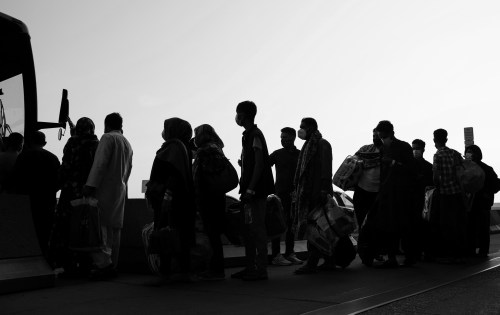
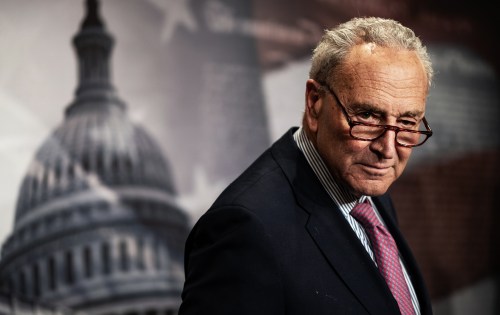

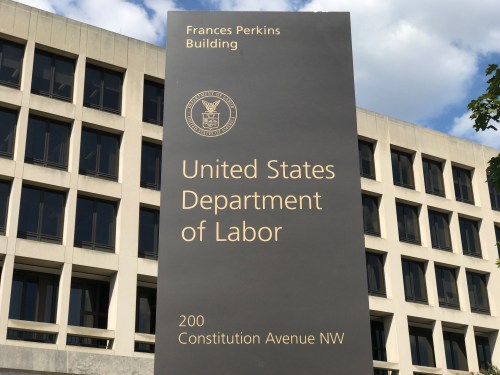
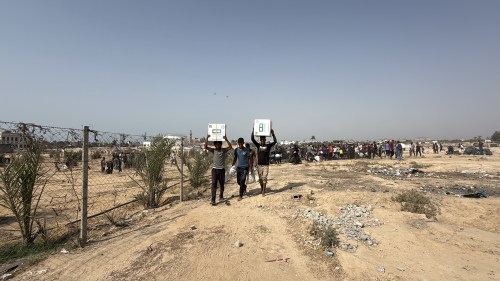





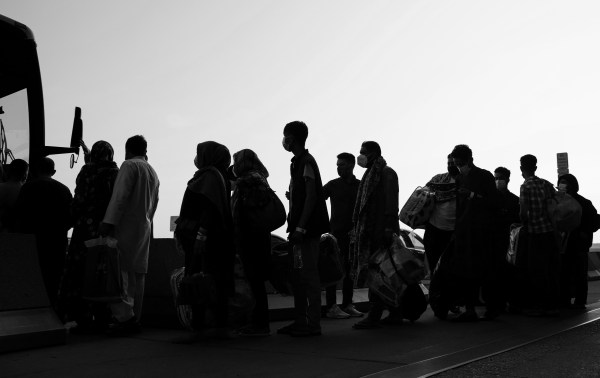


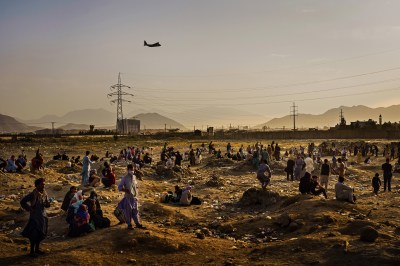
Please note that we at The Dispatch hold ourselves, our work, and our commenters to a higher standard than other places on the internet. We welcome comments that foster genuine debate or discussion—including comments critical of us or our work—but responses that include ad hominem attacks on fellow Dispatch members or are intended to stoke fear and anger may be moderated.
With your membership, you only have the ability to comment on The Morning Dispatch articles. Consider upgrading to join the conversation everywhere.